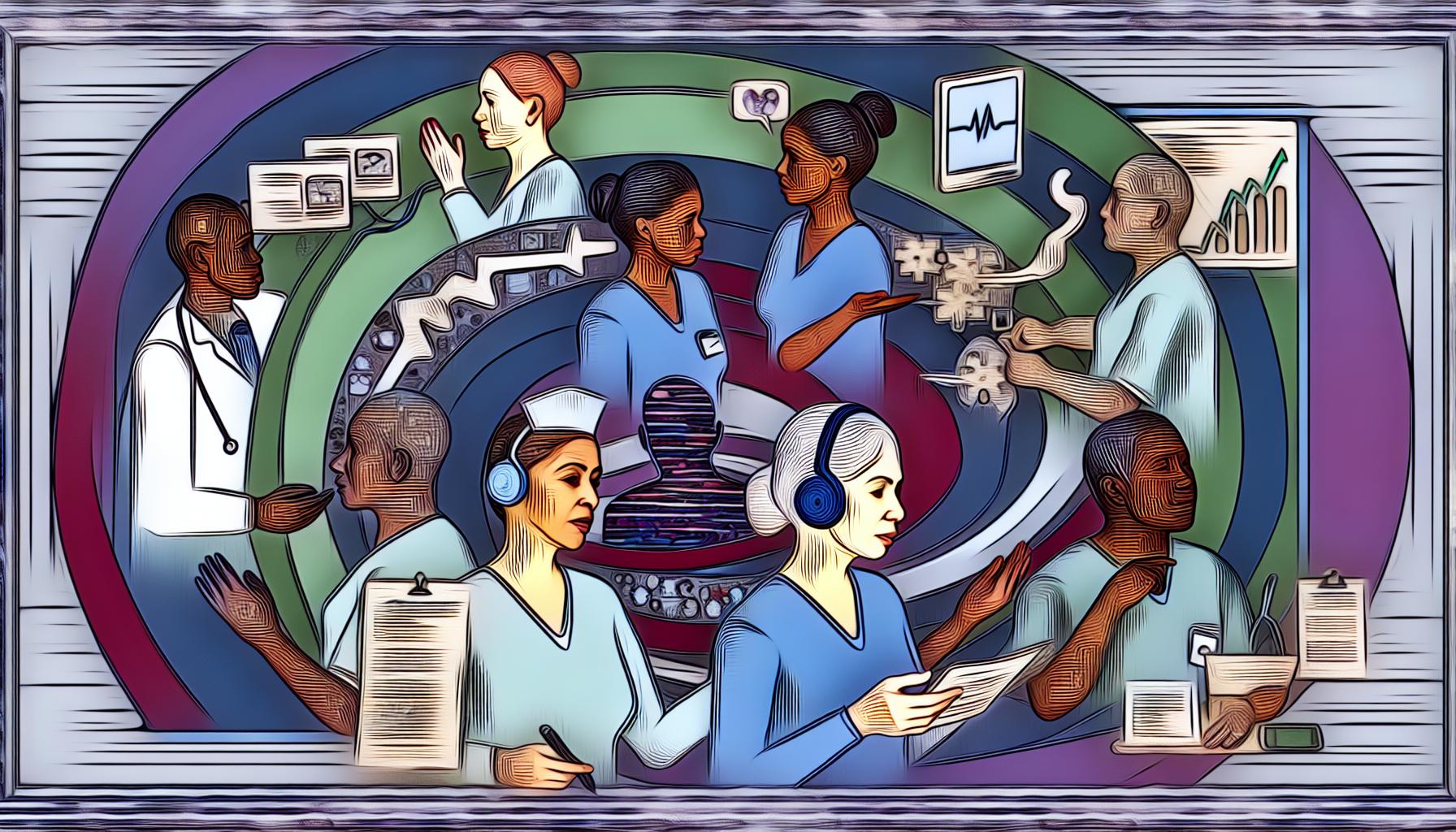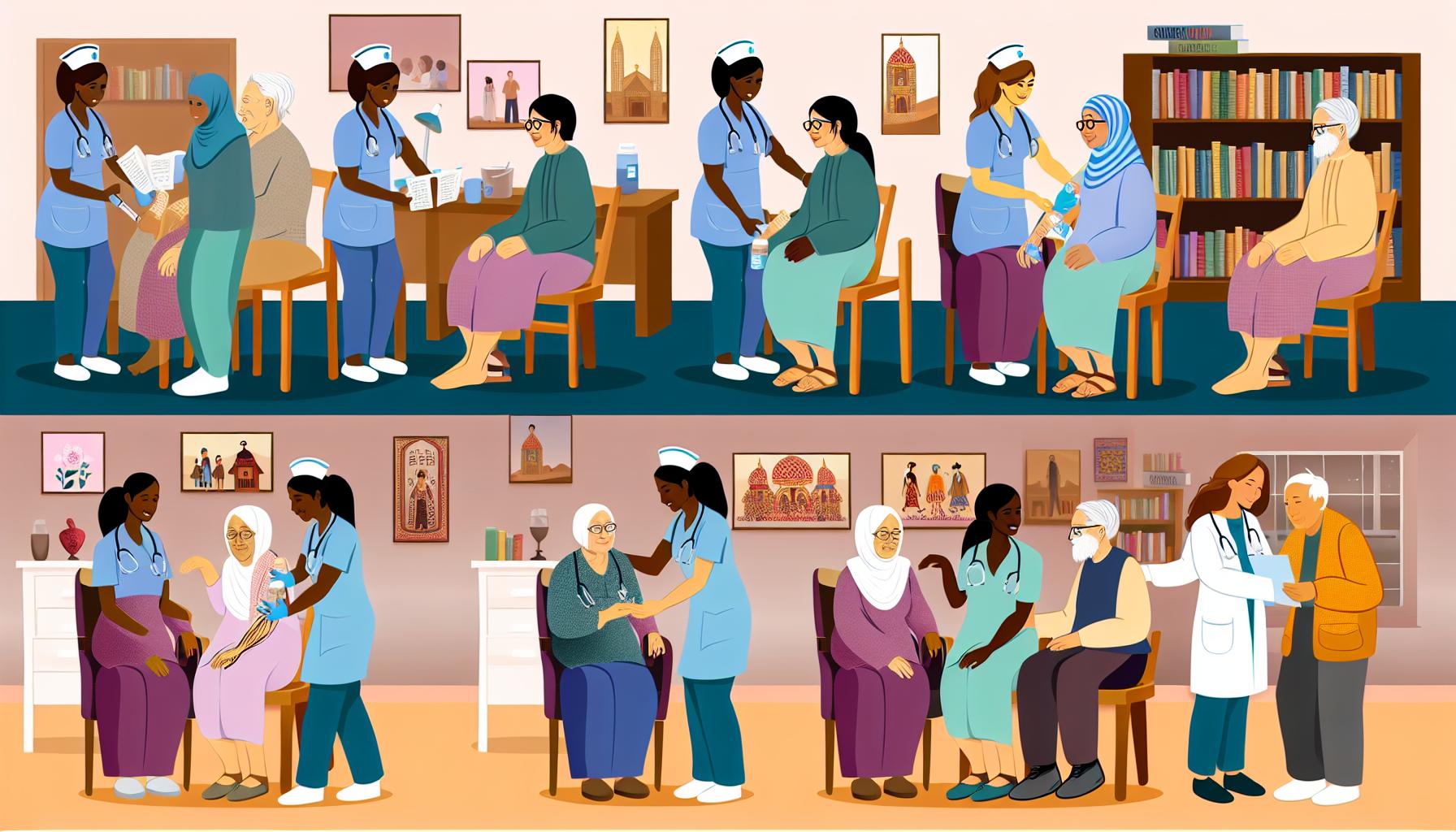The Importance of Cultural Competence in Home Health Nurse Staffing: How Understanding Diversity Enhances Patient…

Strategies for Enhancing Communication Skills in Home Health Nurse Staffing: How Effective Communication Improves Patient Care and Outcomes
Effective Communication in Home Health Nurse Staffing
Communication plays a crucial role in the field of healthcare, especially in home health nurse staffing. Effective communication between healthcare providers, patients, and their families can significantly impact patient care and outcomes. In the fast-paced and demanding environment of home health care, clear and concise communication is essential to ensure that patients receive the best possible care.
Why Communication Skills Matter
Home health nurses are responsible for providing a wide range of services, from administering medication to wound care to emotional support. Strong communication skills are essential for nurses to effectively assess and meet the needs of their patients. When nurses are able to communicate clearly with patients, their families, and other members of the healthcare team, they can provide the best possible care.
Strategies for Enhancing Communication Skills
1. **Active Listening**: Listening is a fundamental aspect of communication. Home health nurses should practice active listening, which involves fully concentrating, understanding, responding, and remembering what is being said. This helps nurses better understand their patients’ needs and concerns.
2. **Empathy and Compassion**: Showing empathy and compassion towards patients can help build trust and rapport. Patients feel more comfortable sharing their feelings and concerns when they feel understood and cared for.
3. **Clear and Concise Communication**: Nurses should communicate in a clear and easily understandable manner. Using simple language, avoiding medical jargon, and explaining medical procedures can help patients better understand their condition and treatment.
4. **Non-Verbal Communication**: Non-verbal cues such as facial expressions, body language, and gestures can convey empathy, reassurance, and understanding. Nurses should pay attention to their non-verbal communication to ensure effective communication with patients.
5. **Team Collaboration**: Effective communication within the healthcare team is essential for coordinating care and ensuring seamless transitions for patients. Nurses should work collaboratively with other healthcare providers to provide holistic care for patients.
6. **Cultural Sensitivity**: Understanding and respecting cultural differences can enhance communication with patients from diverse backgrounds. Home health nurses should be mindful of cultural beliefs and practices that may impact patient care.
7. **Use of Technology**: Utilizing technology such as telehealth platforms, electronic health records, and messaging apps can facilitate communication between nurses, patients, and their families. Technology can streamline communication and improve efficiency in patient care.
Improving Patient Care and Outcomes
Effective communication in home health nurse staffing can lead to improved patient care and outcomes. When nurses communicate effectively with patients, they can better assess and address their needs, leading to better health outcomes. Clear communication also helps prevent misunderstandings, errors, and delays in care, ultimately enhancing the overall quality of patient care.
At ASAP Wellness Cares, we understand the importance of effective communication in home health nurse staffing. Our team of skilled and compassionate nurses is committed to providing the highest quality care to our patients. If you need help or have any questions, feel free to contact us.
For more information on the impact of compassionate care in home health nurse staffing, you might also be interested in this article.



